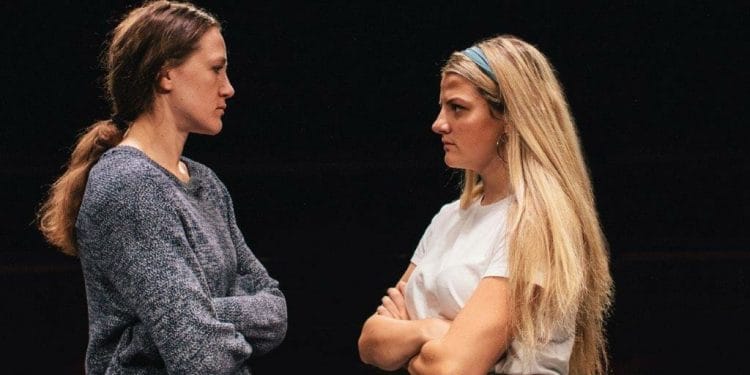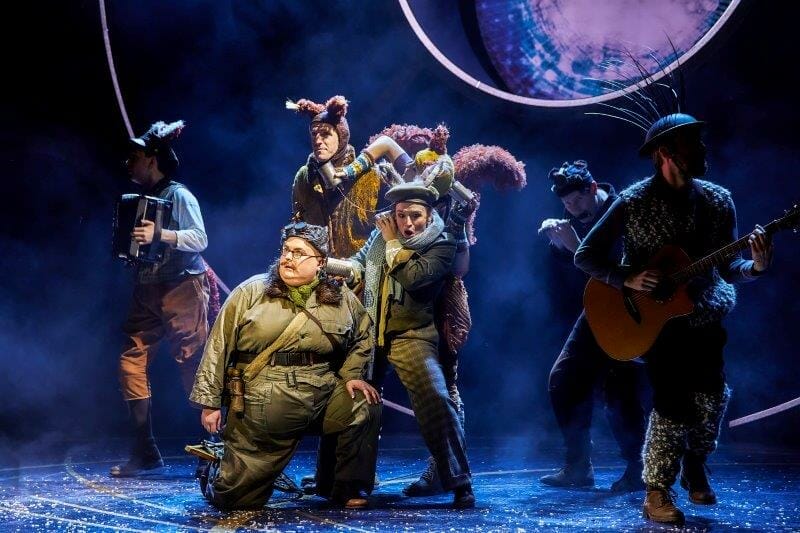 There are things on this earth which you just can’t help—fated things you are born into, and can never amend. Chief among these things is our family. Charley Miles’ challenging, new play Daughterhood playing at the impressive Summerhall Roundabout, explores one such eternal relationship through the strained reunion of distant sisters Pauline and Rachel.
There are things on this earth which you just can’t help—fated things you are born into, and can never amend. Chief among these things is our family. Charley Miles’ challenging, new play Daughterhood playing at the impressive Summerhall Roundabout, explores one such eternal relationship through the strained reunion of distant sisters Pauline and Rachel.
Following their mother’s abrupt disappearance, and their father’s development of an incurable disease, Pauline steps in to care for both her father and her decade-younger sister. Rachel matures and pursues life relatively untethered, while Pauline is constrained to a life that isn’t her responsibility. This horrid mix of bitter jealousy and regret sets the stage for a visceral exploration of separation and estrangement in a severed family.
Head of this family is lonely and regretful Rachel. In portraying her, there is something marvelous in Charlotte Bate’s ferocity. She compels the audience as a lioness her herd—with force. On paper, Pauline can easily seem hysterical or one-note, yet Bate’s fervent understanding of her character casts Pauline as loyal yet acerbic, witty, fearsome, and so much more.
Conversely, Charlotte O’Leary plays Rachel with an exhaustive freedom that makes her both relatable and aspirational. Rachel twists where Pauline turns, and together, they writhe. They also bite and shout, but still they are sisters—even if that decade-long gap has them edging on something short of acquaintances.
Accompanying these two hostile siblings, are the bare traces of a shared past. Ranging from Rachel’s best mates, to Paulina’s ex-boyfriend, Toyin Omari-Kinch embodies this past anew in each, resounding memory. Not only is each character fresh and strikingly different, they are all rooted in reality. No one is bound to a caricature, or milked for a laugh. In fact, Toyin approaches each character with the studied precision of a professor.
But, however striking the cast is alone, their force is tripled as an ensemble. They are quick, unafraid, and splayed open for observation. The commitment each shows separately is truly astounding when combined. Words fly through the air like flaming arrows—spontaneous and fierce—and the audience must brave them all to reach Daughterhood’s heartbreaking finale. But, even at the end of things, not everything has changed—for, still remain those fated things by which we label who we are: parent, sibling, or daughter.
From its masterful character development, to its candid, conscious portrayal, Daughterhood proves not only a literary masterpiece, but also a rare and poignant echo of our current age.
Main Image Credit: Rebecca Need-Menear

















